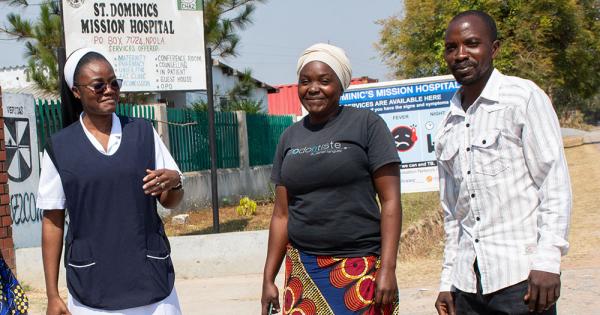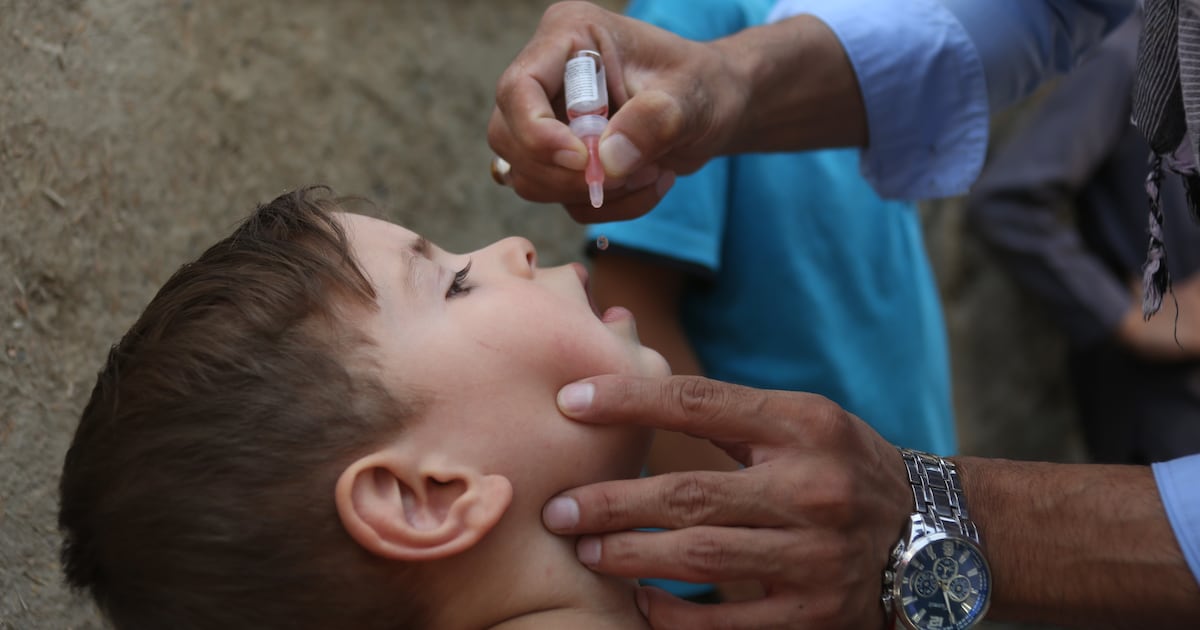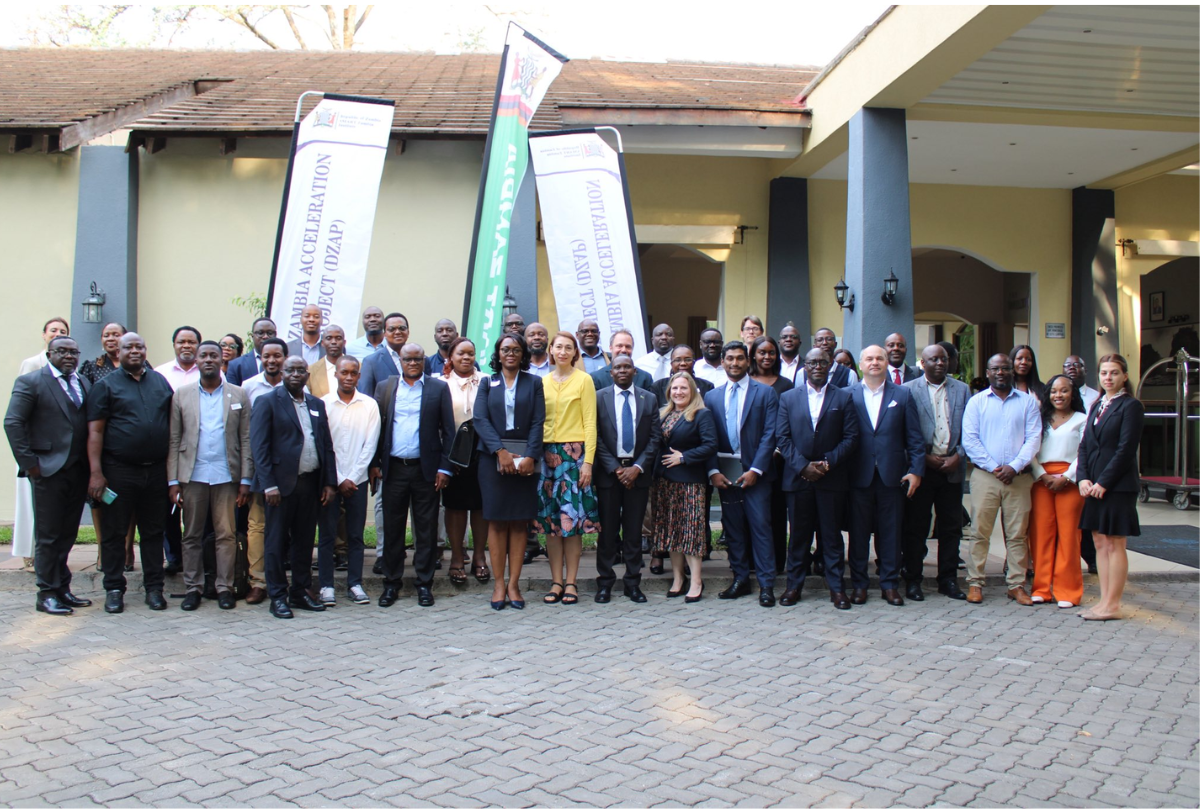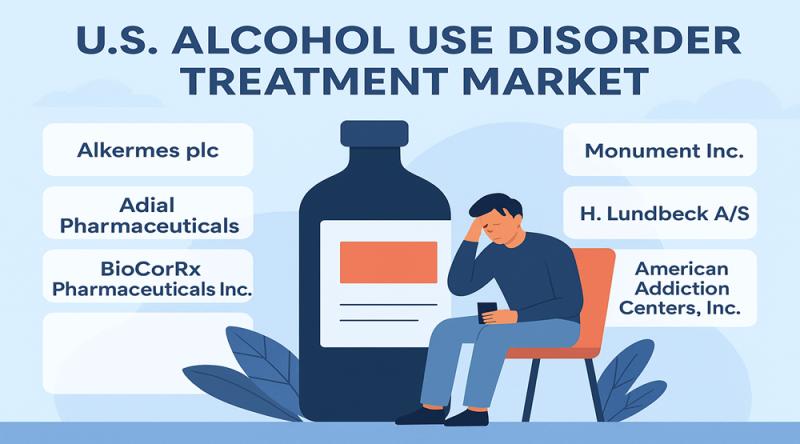Brazil expands occupational risk management rules to include mental health risks – Lockton

Report on Brazil’s Expanded Occupational Risk Management and its Alignment with Sustainable Development Goals
Introduction: Regulatory Advancements in Occupational Health
The Federative Republic of Brazil has mandated the inclusion of work-related psychosocial risk factors within its national occupational risk management framework. This regulatory update, effective from 26 May 2026, represents a significant national effort to advance the principles of the United Nations Sustainable Development Goals (SDGs), particularly SDG 3 (Good Health and Well-being) and SDG 8 (Decent Work and Economic Growth). By requiring employers to identify, assess, and mitigate risks such as stress, work overload, and harassment, Brazil is reinforcing its commitment to creating safer, healthier, and more productive work environments.
Regulatory Framework and Compliance
Ordinance No. 1,419/2024 and Regulatory Norm No. 1
On 27 August 2024, Brazil’s Ministry of Labor and Employment (MTE) issued Ordinance No. 1,419/2024, which amends Regulatory Norm No. 1 (NR-1). This norm establishes the general provisions for Occupational Risk Management (GRO) programs that all employers must implement. The amendment explicitly incorporates psychosocial risk factors into the mandatory scope of these programs.
Implementation Timeline
The deadline for employers to fully comply with the amended regulation has been set for 25 May 2026. Full enforcement of the new requirements will commence on 26 May 2026, providing organizations a preparatory period to integrate these new measures into their existing health and safety systems.
Alignment with Sustainable Development Goals (SDGs)
SDG 3: Good Health and Well-being
The regulation directly supports SDG Target 3.4, which aims to promote mental health and well-being. By compelling employers to manage psychosocial risks, the policy moves beyond traditional occupational safety, which focused on physical hazards, to a more holistic approach that recognizes mental and emotional health as integral components of employee well-being.
SDG 8: Decent Work and Economic Growth
This initiative is a clear implementation of SDG Target 8.8, which calls for the protection of labor rights and the promotion of safe and secure working environments for all workers. Addressing psychosocial risks contributes to:
- Fostering decent work conditions.
- Reducing absenteeism and turnover related to work-induced stress and burnout.
- Improving productivity and contributing to sustainable economic growth.
SDG 5 and SDG 16: Gender Equality and Strong Institutions
The explicit inclusion of harassment as a manageable risk factor supports SDG Target 5.2, which seeks to eliminate all forms of violence and harassment against women and girls. Furthermore, the MTE’s action demonstrates the role of effective and accountable institutions (SDG 16) in creating and enforcing non-discriminatory laws and policies that protect vulnerable populations and promote sustainable development.
Key Requirements for Employers
Expanded Scope of Occupational Risk Management (GRO)
The amended regulation mandates that employers’ GRO programs must now explicitly account for work-related psychosocial risk factors. These factors include, but are not limited to:
- Excessive workloads
- Conflicting demands and lack of role clarity
- Lack of involvement in decision-making
- Poorly managed organizational change
- Ineffective communication
- Psychological and sexual harassment
- Workplace violence
Mandated Risk Management Procedures
Employers are required to follow a systematic process for managing psychosocial risks, consistent with procedures for all other occupational hazards. This process includes the following steps:
- Identifying potential psychosocial hazards in the workplace.
- Assessing the risks associated with identified hazards.
- Classifying risks to determine priority for intervention.
- Implementing preventive and corrective measures.
- Monitoring the effectiveness of control measures and making necessary adjustments.
All identified psychosocial risks must be documented in the organization’s formal risk register, and a corresponding action plan detailing preventive measures must be developed and regularly reviewed.
Recommendations for Employer Action
Proactive Compliance and Preparation
Given the complexity of assessing and managing psychosocial risks, employers are strongly encouraged to begin the review and update of their GRO programs well in advance of the May 2026 deadline. This may involve seeking specialized knowledge or engaging independent experts to ensure comprehensive compliance and the effective promotion of workplace well-being.
Utilization of Official Resources
The MTE has published an official guide on work-related psychosocial risks to assist employers. Organizations should review the amended NR-1 and the associated MTE guide to develop a robust strategy for managing these newly codified risks, thereby ensuring compliance and contributing to a national culture of health, safety, and sustainable development.
SDGs Addressed in the Article
SDG 3: Good Health and Well-being
- The article directly addresses SDG 3 by focusing on the protection of “mental and emotional wellbeing in the workplace.” The new regulation in Brazil requires employers to manage work-related psychosocial risk factors like stress and work overload, which can “harm employee health.” This is a clear initiative to promote mental health and prevent illness, aligning with the goal of ensuring healthy lives and promoting well-being.
SDG 8: Decent Work and Economic Growth
- The article is fundamentally about improving working conditions, which is a core component of SDG 8. By expanding “occupational risk management rules” to include psychosocial factors, Brazil is working to create safer and more secure work environments. The regulation aims to protect employees from “illness or injury in the workplace,” including issues like “harassment,” which directly supports the promotion of decent work for all.
SDG 5: Gender Equality
- This goal is relevant through the specific inclusion of “harassment” as a work-related psychosocial risk factor that employers must address. Workplace harassment is a form of violence that disproportionately affects women. By mandating preventive measures against harassment, the regulation contributes to creating safer spaces for all genders and helps eliminate a key barrier to gender equality in the workplace.
SDG 16: Peace, Justice and Strong Institutions
- The article demonstrates SDG 16 in action. It details how a national government body, “Brazil’s Ministry of Labor and Employment (MTE),” has developed and is implementing a new law (“Ordinance No. 1,419/2024, which amended Regulatory Norm No. 1”). This represents the development of effective and accountable institutions that create and enforce policies to protect citizens’ rights and well-being.
Specific SDG Targets Identified
SDG 3: Good Health and Well-being
-
Target 3.4: By 2030, reduce by one third premature mortality from non-communicable diseases through prevention and treatment and promote mental health and well-being.
Explanation: The Brazilian regulation is a direct preventative measure aimed at promoting mental health. By requiring employers to “identify, assess and adopt preventive measures” for risks like stress and work overload, it seeks to prevent the onset of mental health conditions and other non-communicable diseases linked to chronic workplace stress.
SDG 8: Decent Work and Economic Growth
-
Target 8.8: Protect labour rights and promote safe and secure working environments for all workers, including migrant workers, and in particular women migrants, and those in precarious employment.
Explanation: This target is central to the article. The amended regulation explicitly aims to create a safer working environment by expanding the definition of occupational risk to include psychosocial factors. The entire process described—from identifying hazards to implementing preventive measures—is designed to “promote safe and secure working environments.”
SDG 5: Gender Equality
-
Target 5.2: Eliminate all forms of violence against all women and girls in the public and private spheres, including trafficking and sexual and other types of exploitation.
Explanation: By mandating that employers manage “harassment” as an occupational risk, the policy directly contributes to eliminating a form of violence in the private sphere (the workplace). This creates a formal mechanism to prevent and address harassment, which is a critical step toward achieving this target.
SDG 16: Peace, Justice and Strong Institutions
-
Target 16.6: Develop effective, accountable and transparent institutions at all levels.
Explanation: The article highlights the MTE’s process of issuing an ordinance, amending a regulation, setting compliance deadlines, and even publishing a guide to support employers. This demonstrates an effective and transparent institution at the national level working to implement and enforce public policy. -
Target 16.b: Promote and enforce non-discriminatory laws and policies for sustainable development.
Explanation: The regulation is a non-discriminatory policy as it applies to all employers and aims to protect all employees from psychosocial risks, contributing to sustainable development by ensuring a healthier and more productive workforce.
Indicators for Measuring Progress
SDG 3: Good Health and Well-being (Target 3.4)
-
Implied Indicator: Number and percentage of employers that have included psychosocial risks in their occupational risk management programs.
Explanation: The article states that employers will need to “record identified psychosocial risks in their risk register” and “develop an action plan.” The existence and completeness of these formal documents can be tracked to measure the implementation of the regulation and progress toward promoting mental well-being at work.
SDG 8: Decent Work and Economic Growth (Target 8.8)
-
Implied Indicator: Reported incidence of work-related psychosocial issues (e.g., stress, burnout, harassment) within companies.
Explanation: The regulation requires employers to “monitor the control of occupational risks.” This monitoring process would generate data on the prevalence of psychosocial risks and the effectiveness of preventive measures. A reduction in such reported incidents would indicate progress toward a safer work environment.
SDG 5: Gender Equality (Target 5.2)
-
Implied Indicator: Number of companies with specific anti-harassment policies and preventive measures as part of their mandated action plan.
Explanation: Since “harassment” is explicitly listed as a risk, the mandated “action plan setting out preventive measures” must address it. The number of companies that develop and implement these specific anti-harassment measures can serve as an indicator of progress.
SDG 16: Peace, Justice and Strong Institutions (Targets 16.6 & 16.b)
-
Direct Indicator: Existence and enforcement of national legislation on psychosocial risks in the workplace.
Explanation: The article itself is evidence of this indicator. It cites the specific law (“Ordinance No. 1,419/2024”) and the regulation it amends (“Regulatory Norm No. 1”). The enforcement date of “26 May 2026” is a key milestone for measuring the law’s implementation.
Summary Table of SDGs, Targets, and Indicators
| SDGs | Targets | Indicators (Identified in Article) |
|---|---|---|
| SDG 3: Good Health and Well-being | 3.4: Promote mental health and well-being. | Implied: Percentage of companies with formal risk registers and action plans addressing psychosocial risks. |
| SDG 8: Decent Work and Economic Growth | 8.8: Protect labour rights and promote safe and secure working environments for all workers. | Implied: Data from employer monitoring on the incidence of work-related stress, overload, and harassment. |
| SDG 5: Gender Equality | 5.2: Eliminate all forms of violence and harassment in the public and private spheres. | Implied: Number of companies with specific preventive measures against harassment included in their action plans. |
| SDG 16: Peace, Justice and Strong Institutions | 16.6: Develop effective, accountable and transparent institutions. 16.b: Promote and enforce non-discriminatory laws and policies. |
Direct: Existence and enforcement of Ordinance No. 1,419/2024 and the amended Regulatory Norm No. 1 by the MTE. |
Source: global.lockton.com

What is Your Reaction?
 Like
0
Like
0
 Dislike
0
Dislike
0
 Love
0
Love
0
 Funny
0
Funny
0
 Angry
0
Angry
0
 Sad
0
Sad
0
 Wow
0
Wow
0

















































































